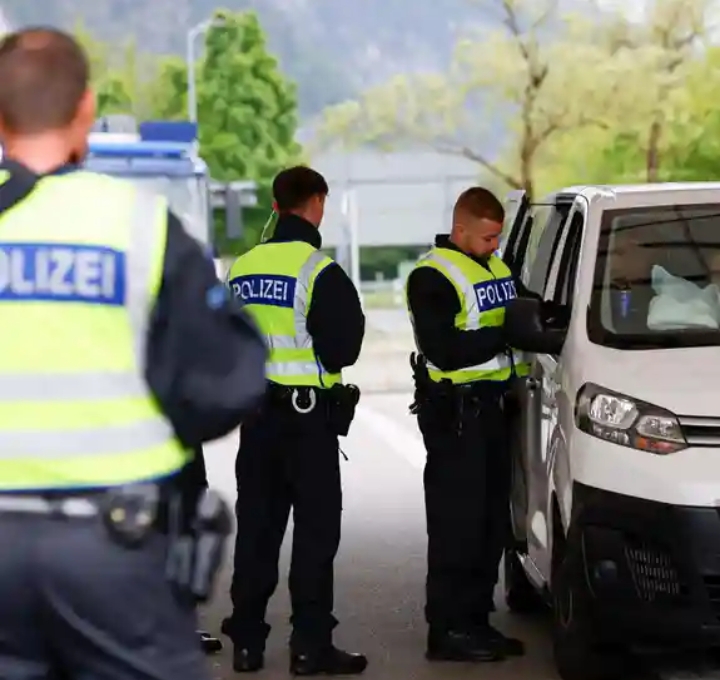Germany tightens border checks amid sharp rise in political debate over illegal migration.
Germany Sees Major Drop in Unauthorized Border Crossings


The number of migrants “illegally” entering Germany has declined by more than 100,000 over the past two years, according to figures provided by the German police.
These statistics, reported by German broadsheet newspaper Die Welt, reveal that 22,170 cases of “illegal entry” into Germany have been recorded so far in 2025. This figure represents a sharp decrease from the 83,572 recorded during the same period in 2024, and a significant drop from the 127,549 cases in 2023.
The reported decline coincides with a policy shift spearheaded by Germany's new interior minister, Alexander Dobrindt. In his first week in office, Dobrindt implemented more stringent border checks, instructing police to turn back asylum-seekers—except for particularly vulnerable individuals such as pregnant women and children.
On Thursday, Dobrindt, a member of Chancellor Friedrich Merz’s conservative Christian Democratic Union (CDU), visited a border crossing in the town of Kiefersfelden on the Austrian border. He was accompanied by Bavarian Premier Markus Söder of the Christian Social Union (CSU), the CDU's Bavarian sister party. Speaking to reporters, the two officials announced that 729 attempts to illegally enter Germany had been prevented in the past seven days. Dobrindt stated confidently: “The new border checks are working.”
Addressing parliament on Friday to present his ministry’s plans, Dobrindt emphasized that “the integration capabilities of a country have their limits when it comes to illegal migration.” He added, “Citizens expect a political change from us and this change has begun on Germany’s borders.” Speaking to the CDU's junior coalition partners, the center-left Social Democrats (SPD), he acknowledged, “I know that this is a bigger leap for you than it is for us. But let’s complete this task together.”
Dobrindt maintained that Germany remains a “tolerant country” and one that is “open to legal migration into our job market and society.”
A YouGov poll conducted on behalf of the Süddeutsche Zeitung newspaper on Friday showed that 68% of CDU voters support the new measures and believe they will help reduce irregular immigration.
However, despite these efforts, Dobrindt and the CDU may find it challenging to win back traditional conservatives who have shifted support to the far-right Alternative for Germany (AfD). The same poll revealed that 63% of AfD voters are skeptical that the new border controls will have any real effect.
In parliament, AfD lawmaker Gottfried Curio criticized the measures as insufficient, calling for the deportation of all individuals who have entered Germany illegally. He also took issue with the fact that too many vulnerable groups are being exempted from the new rules. The AfD, currently classified as a right-wing “extremist” organization pending appeal by Germany’s domestic intelligence agency, has continued to use migration issues to galvanize political support.
Criticism has also come from left-leaning parties. Germany’s Left Party (Die Linke) questioned the legality of Dobrindt’s approach. Lawmaker Clara Bünger warned that the rejection of asylum applications could lead to a “spiral of deprivation of rights and isolation,” stating that the measures “encourage a practice which is beyond the law.”
The Green Party expressed concern over the strain the new measures may place on police officers, both in terms of legality and workload. Konstantin von Notz, the Greens' parliamentary leader, predicted: “In three weeks at the latest, the massive strain on personnel will effectively end these measures.”
Meanwhile, Greens in the European Parliament have suggested that individual police officers turning back asylum-seekers could face legal consequences. Green MEP Erik Marquardt told Focus magazine that the intensified border checks lack “any legal footing” and warned: “Police officers are making themselves liable to prosecution for Dobrindt’s immigration drama.”
Despite the backlash, the German Police Union (DPolG) has expressed support for the new policy. Its deputy chairman, Manuel Ostermann, called for a return to immigration levels seen before 2012. Speaking to Welt, he said, “The border checks and the firm application of national law are a success, reducing the pressure of immigration which has long been overwhelming Germany.”
He added that a “domino effect” was now in motion, in which asylum applications are again being made at the European Union’s external borders, as legally required.

 বাংলা
বাংলা  Spanish
Spanish  Arabic
Arabic  French
French  Chinese
Chinese 
